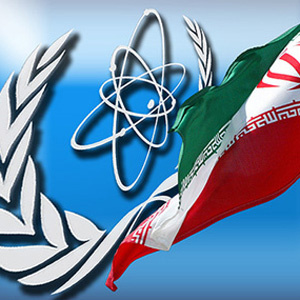Anti-Iran Sanctions: The Iranian Solution

 Iran is a major focus of the global media, just as it always has been. It seems to have turned into a never-ending story that becomes more misunderstood day by day. So let’s delve into the story. Is there one more opportunity to employ rational diplomacy to mitigate the threats and alleviate the unbefitting tone used against our country? Or should we sit by idly and see how our fate turns out? A propaganda machine has started its psychological warfare against Iran, inverting the truth to such an extent that even some of our international friends are starting to doubt our intentions.
Iran is a major focus of the global media, just as it always has been. It seems to have turned into a never-ending story that becomes more misunderstood day by day. So let’s delve into the story. Is there one more opportunity to employ rational diplomacy to mitigate the threats and alleviate the unbefitting tone used against our country? Or should we sit by idly and see how our fate turns out? A propaganda machine has started its psychological warfare against Iran, inverting the truth to such an extent that even some of our international friends are starting to doubt our intentions.Diplomacy is one of the basic challenges for Iran. On the one hand, there is the delusion-inflicted rhetoric of some Iranian diplomats that has accomplished nothing—rather, it has resulted in strategic failure. On the other hand, the international community is increasingly moving farther away from applying justice in its dealings with Iran. Since the UN was wielded mischievously by global powers to serve their interests and pressure other countries, global threats have increased. To save face for the United Nations, the Security Council, and other international organizations, the West should stop its behavior duality and its discriminatory enforcement of rules and regulations.
Irresponsible remarks aimed at the territorial integrity of any country are against the spirit of the UN Charter. Worse yet are the multilateral global-powers-orchestrated sanctions, which have proved fruitless and ineffective and merely brought suffering to the nations concerned.
Understanding the sanctions requires a prior knowledge of the current global atmosphere. The new sanctions imposed on Iran are a sequel to the three previous rounds of punitive measures approved by the global powers. But in examining the history of Iran’s relations with foreign countries, we discover that since the era of the Qajar Dynasty (1794-1925), Iran has in fact been under sanctions in one form or another –albeit sometimes unwritten. Iran was the main supplier of Russia’s rice during this era, for example, which was boycotted by the Russians for a period. During the time Iranian Prime Minister Mohammad Mosaddeq co-launched his campaign for the nationalization of Iranian oil, voices were heard calling for the sanctioning of Iran’s oil exports. Many of the new sanction-related developments are rooted in Iran-U.S. ties. The residents of the White House have now set an “emergency” status for relations with Iran, thus seriously toughening the punitive measures against our country.
Three important points about the sanctions should not be missed, though: first is the “composite” nature of the sanctions. Second is the cumulative impact of the sanctions. And the extent of the sanctions is a third basic point. The sanctions have indeed targeted our national economy, technology and industry, particularly in the energy sector. Restrictions on arms deals and threats against our sovereignty (as in the case of inspecting Iranian vessels) are other key parts of the new round of punitive measures.
World powers are seeking a global consensus against Iran through these sanctions. They know that the sanctions per se cannot be effective, but as a tool they can weaken Iran, render its position in the global economy (arising mostly from its energy and transportation privileges) shaky, and undermine Iran’s financial status. They, along with Israel—which is trying to coax an American nod for a military attack—are also trying to mobilize the region against Iran. The illusion of Iran’s pursuit of a nuclear weapon has brought the West around to a belief that Iran is a threat against its regional and international interests.
In the West, the sanctions are thought to have two objectives:
1. Blocking Iran’s nuclear progress: international organizations are utilized in pursuit of this goal. The wave of multilateral and unilateral sanctions by the UN, the United States, the EU, Australia and a number of other countries, hand in hand with media propaganda, are directed towards this goal.
2. Pressuring the Iranian nation: both the Arabs and the West are intently focusing on this possibility. International economic restrictions against Iran will lead to the increase in price of imported goods, and Iran’s lagging in the competitive regional market against rivals such as Saudi Arabia and Turkey. Iran’s reduced influence in world energy equations and the increasing exploitation of neighbors (such as Qatar) from joint resources (only bolstered by Iran’s impediment due to sanctions) will ultimately harm Iran’s economy. The West is also cooperating with China and Russia to undermine Iran’s regional role. Take Moscow’s opposition to Iran’s membership in the Shanghai Cooperation Organization, for instance.
The West knows full well that Iran’s cooperation with the IAEA has so far prevented the distortion of realities about Iran’s nuclear program. Nevertheless, the West’s political aim is to forge a confrontation between Iran and the international community. Those sitting in crisis-inciting think tanks in the West would have no problem with Iran even withdrawing from the NPT and preparing the circumstances for a military confrontation. A greater amount of rationality is needed inside Iran today, to quell the rampant existing Iranophobia and to weather the current crisis-like situation.
Sadegh Kharrazi is Iran’s former ambassador to France.

